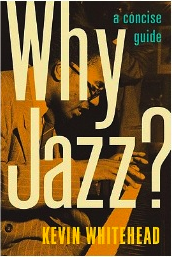By Anatoly Liberman
Baron, mark, and concise.
I am always glad to hear from our readers. This time I noted with pleasure that both comments on baron (see them posted where they belong) were not new to me. I followed all the references in Franz Settegast’s later article (they are not yet to be found in such abundance in my bibliography of English etymology) and those in later sources and dictionaries, and, quite naturally, the quotation from Isidore and the formula in which baron means “husband” figure prominently in every serious work on the subject. No one objected to the hypothesis I attempted to revive. Regrettably, Romance etymologists hardly ever read this blog. In any case, I have not heard their opinion about bigot, beggar, bugger, and now baron. On the other hand, when I say something suspicious or wrong, such statements arouse immediate protest, so perhaps my voice is not lost in the wilderness.
Thus, in one of the letters sent to Oxford University Press I was told that my criticism of the phrase short and concise “is not well taken,” because legal English does make use of this tautological binomial, along with many more like it, in which two synonyms—one English and one French—coexist and reinforce each other. What our correspondent said is, no doubt, correct, and I am aware of numerous Middle English legal compounds of the love-amour type. However, I am afraid that some people who have as little knowledge of legalese as I do misuse concise and have a notion that this adjective is a synonym of precise. Perhaps someone can give us more information on this point. I also want to thank our correspondent who took issue with my statement on the pronunciation of shire: my rule was too rigid.
As for mark, our old correspondent Nikita (he never gives his last name) is certainly right. Ukraine (that is, Ukraina) means “borderland.” In the past, the word was not a place name, and other borderlands were also called this. Equally relevant are the examples Mr. Cowan cited. I don’t know whether Tolkien punned on myrk-, but Old Icelandic myrk- does mean murk ~ murky, as in Myrk-við “Dark Forest” (so a kind of Schwarzwald) and Myrk-á “Dark River.”
Spelling and general intercourse.
I suspect that Mr. Bett (see his comments on the previous gleanings) is an advocate of an all-or-nothing reform. I’d be happy to see English spelling revolutionized, and my suggestion (step by step) is based on expedience (politics) rather than any scholarly considerations. When people speak of phonetic spelling, they usually mean phonemic spelling, so this is not an issue. But I would like to remind everyone that the English Spelling Society was formed in 1908. And what progress has it made in 116 years? Compare the two texts given below.
To begin with, I’ll quote a few passages from Professor Gilbert Murray’s article published in The Spectator 157, 1936, pp. 983-984. At that time, he was the President of the Simplified Spelling Society.
“There are two plain reasons for the reform of English spelling. In education the work of learning to read and write his own tongue is said to cost the English child [I apologize for Murray’s possessive pronoun] a year longer than, for example, the Italian child, and certainly tends to confuse his mind. For purposes of commerce and general intercourse, where the world badly needs a universal auxiliary language and English is already beginning in many parts of the world to serve this purpose, the enormous difficulty and irrationality of English spelling is holding the process back.…”
He continued:
“Now nearly all languages have a periodic ‘spring cleaning’ of their orthography. English had a tremendous ‘spring cleaning’ between the twelfth and the fourteenth century.… It is practically Dryden’s spelling that we now use, but few can doubt that the time for another ‘spring cleaning’ is fully arrived… It must not be supposed that the reformers want an exact phonetic alphabet…. What we need is merely a standard spelling for a standard language…. The ‘spring cleaning’ which my society asks for is, I think, quite certain to come; though the longer it is delayed the more revolutionary is will be. It may come, as Lord Bryce, when President of the British Academy, desired, by means of a Royal Commission or a special committee of the Academy. It may, on the other hand, come through the overpowering need of nations in the Far East, and perhaps in the North of Europe, to have an auxiliary language, easy to learn, widely spoken, commercially convenient, and with a great literature behind it, in a form intelligible to write and to speak.”
All this could be written today, even though with a few additions and corrections. English is no longer beginning to serve the purpose of an international language; it has played this role since World War II. We no longer believe that the desired “cleaning” is sure to come: we can only hope for the best.
Let us now listen to Mr. Stephen Linstead, the present Chair of the English Spelling Society, who said to The Daily Telegraph on 23 May 2014 the following: “The spelling of roughly 35 percent of the commonest English words is, to a degree, irregular or ambiguous; meaning that the learner has to memorise these words.” A need to memorize irregularity, he explains, “costs children precious learning time, and us—as a nation—money…. A study carried out in 2001 revealed that English speaking children can take over two years longer to learn basic words compared with children in other countries where the spelling system is more regular.”
We can see that our educational system is making great strides: what used to take one year now takes two. Mr. Linstead says other things worth hearing of which I’ll single out the proposal. It concerns the formation of an international English Spelling Congress “made up of English speakers from across the world who are open to the possibility of improving English spelling and who would like to contribute to the difficulty of mastering our spelling system.” As I understand it, the reformers plan to pay special attention to organizational matters, rather than arguing about the details of English spelling. This looks like a rational attitude. The public is not interested in the reform. Nor did it show any enthusiasm for it in 1936. There were two letters to the editor in response to Professor Gilbert’s article, but both came from the members of the Society, that is, from the “choir.” If the Congress materializes, it should include a lot of very influential people (what about Lord Bryce’s idea?). Otherwise, we will keep talking for another one hundred and six years without any results.
Busy as a bee.
The public, as I said above, does not care about the reform, but it is greedy, covets monetary prizes, and sends children to a torture known as spelling bee. The hive originated in 1925. Here is a case of a bright thirteen year old boy. He speaks English (and to some extent two other languages, one of them learned at home) and is an avid reader. He made it to the semifinals but misspelled ananke (a useful word that reminds even the gods that doom is unavoidable—just what a young boy should keep in mind). I don’t know what he did wrong. Probably he assumed that the word was Latin and spelled it with a c, but alas and alack, it is Greek. For eight weeks a coach (another young student) used to work with the boy three times a week. What a waste! The boy said: “I was really nervous, because you really don’t know what word you were going to get. I wanted to make it farther. [However,] I was really pleased with how I did and how I placed.” I am afraid he will grow up knowing several hundred words he will never see in books and using really three times in two lines. Remembering the spelling of ananke will be the only reward for his efforts.

A snake in the slough of despond. Image credit: A Cantil (Agkistrodon bilineatus) with a shed skin nearby at Little Ray’s Reptile Zoo. Photo by Jonathan Crowe. CC BY-NC-ND 2.0 via mcwetboy Flickr.
I think society (society at large, not the Spelling Society) should do what administrators, masters of a meaningless jargon, call sorting out priorities, stop abusing children, forget the fate of the gods, and concentrate on the misery of the mortals who try to make sense of bough, cough, dough, rough, through, and the horrors of the word slough.
To be continued next week.
Anatoly Liberman is the author of Word Origins And How We Know Them as well as An Analytic Dictionary of English Etymology: An Introduction. His column on word origins, The Oxford Etymologist, appears on the OUPblog each Wednesday. Send your etymology question to him care of [email protected]; he’ll do his best to avoid responding with “origin unknown.” Subscribe to Anatoly Liberman’s weekly etymology articles via email or RSS.
Subscribe to the OUPblog via email or RSS.
Subscribe to only language articles on the OUPblog via email or RSS.
The post Monthly etymology gleanings for June 2014, part one appeared first on OUPblog.







What a great story. I would love to hear her speak. It's great to know she's one of us! (And it's interesting that recently I've been hearing about more and more people who have an aversion to the telephone. For a long time I thought I was the only one.)
I know a great bookmark/postcard vendor. We've had some jobs printed at Tu-vets and they do an outstanding job at a reasonable price:
http://www.tu-vets.com/
Hi, Sheila,
Thanks so much for the lead about tu-vets. I will definitely check it out?
Oh, yeah, if you EVER get a chance to hear Nancy Pearl speak, RUN, don't walk. :-)
You can add me to the list of people that go way, way "shrinky" about the phone. Eeeek!
Funny, huh?
Mary Hershey
Very cool story about Nancy Pearl, Mary. I think you gave me a copy of her BOOK LUST a birthday or two ago. I use it all the time. (It's a book journal, for those of you who aren't familiar with it.)
How fun to hear her talk. An introvert who creates her own action figure--I love that.
I read your list of to-dos at the end of the post. I think, for a tie-in, you guys need a tiny, rag doll version of Miss Viola. Think a miniature Raggedy Ann in red leather & lipstick.
Shrinking Violets action figures should probably come with hand-held fan (to hide the face), dark glasses, etc. And a writer's retreat cabin to rival anything Barbie ever had.
I'm laughing about the writer's retreat cabin, LA! Love it!
And, Becky, great idea about a Ms. Viola doll! Why didn't we think of that before? :-)
Robin, the Book Lust I gave you was the journal-- not the book that has all her reviews. I've ordered her books and will share them with you when they come in. Can't wait to see Book Crush.
Thanks for all your comments, everyone--
Mary
Great Nancy Pearl story! Another printer I've used a lot for library and podcast promotional stuff is PS Print, www.psprint.com.